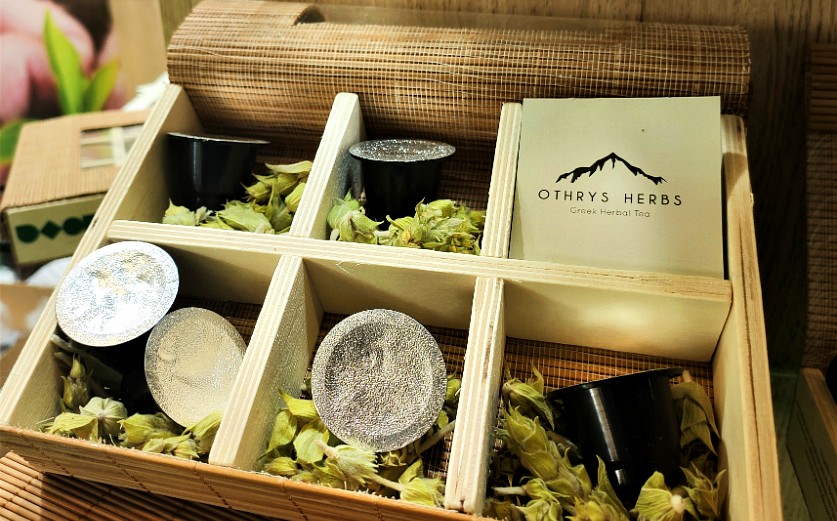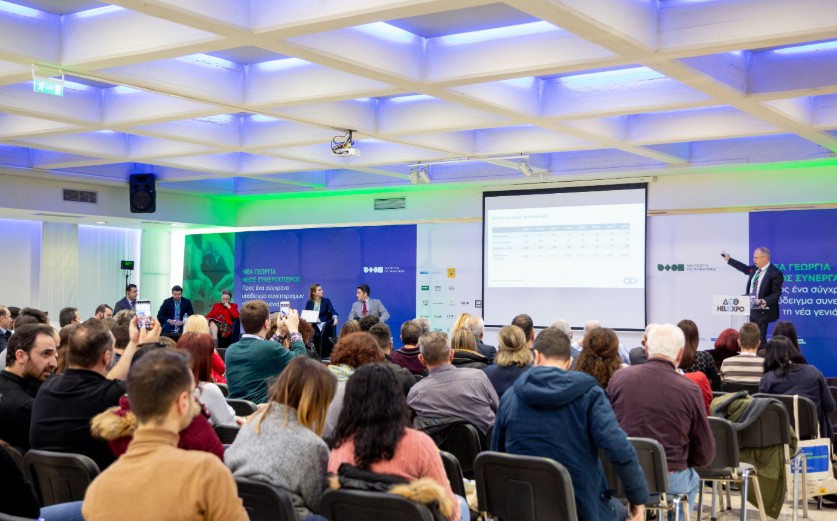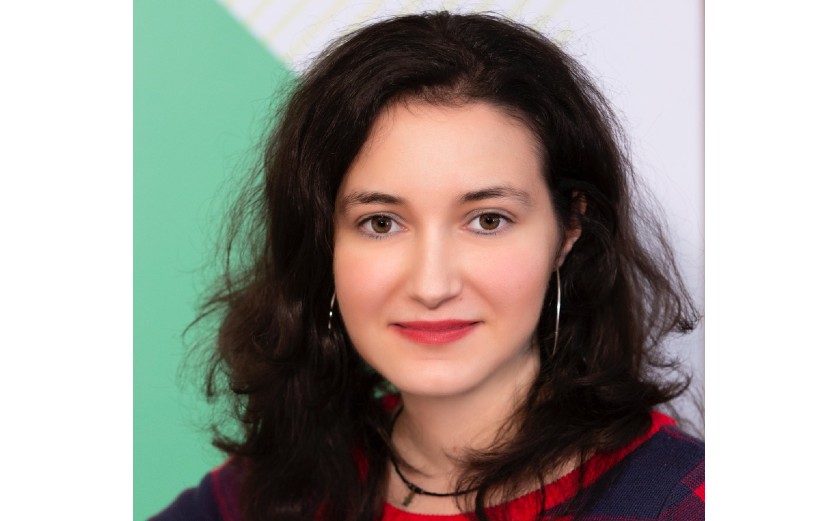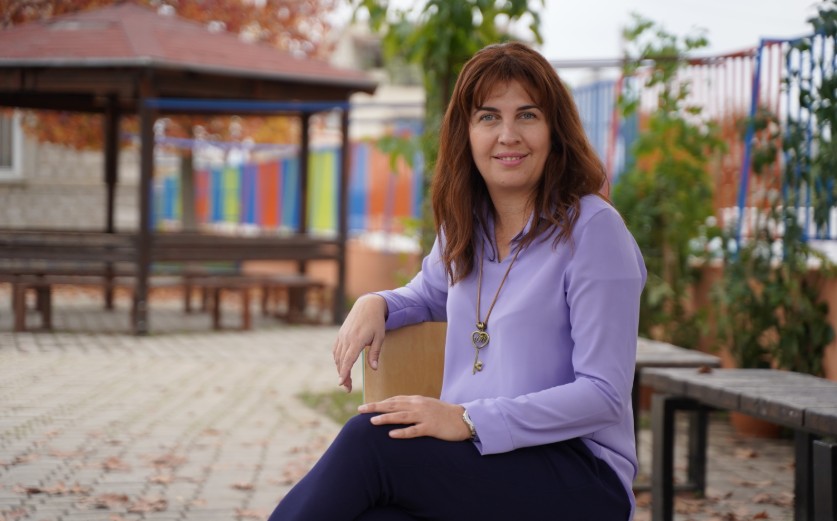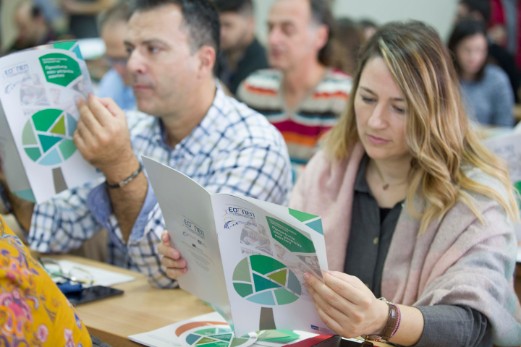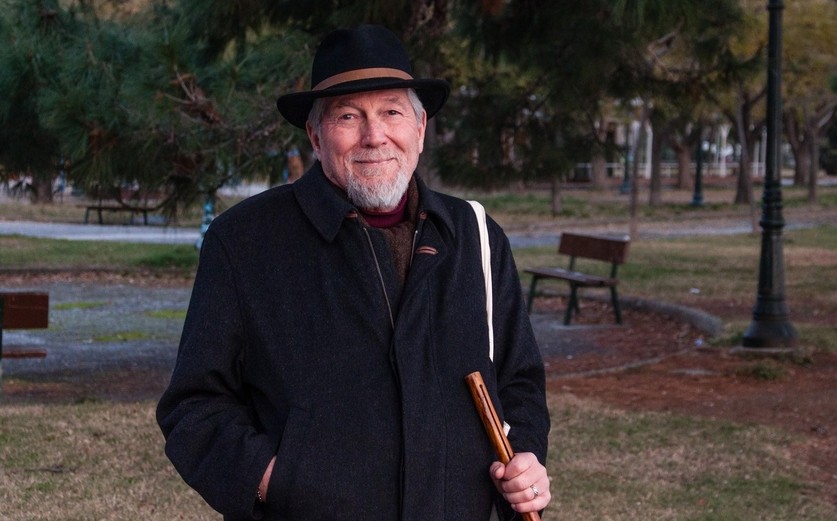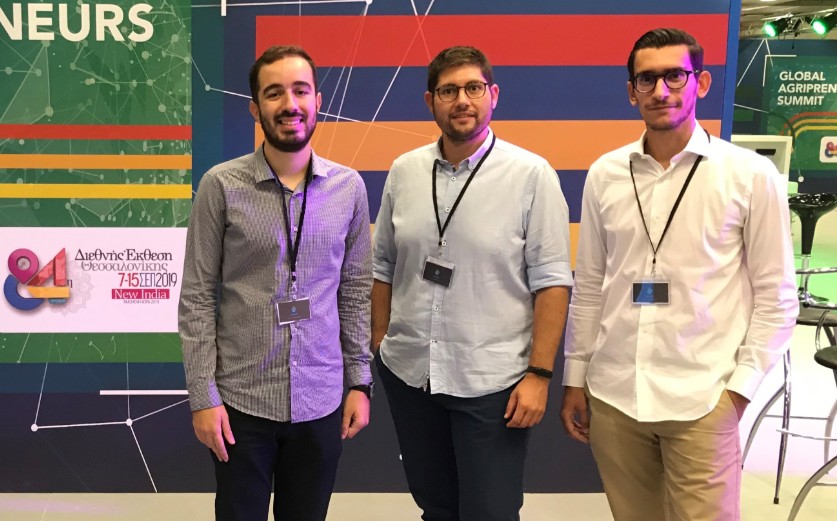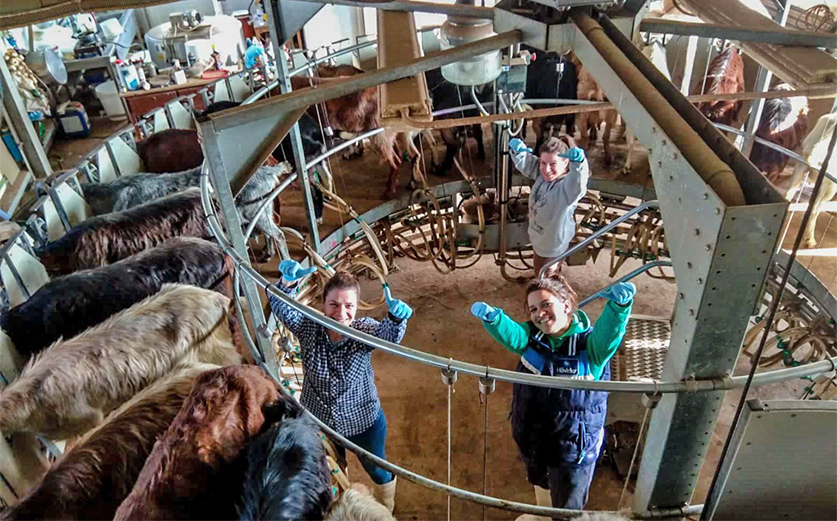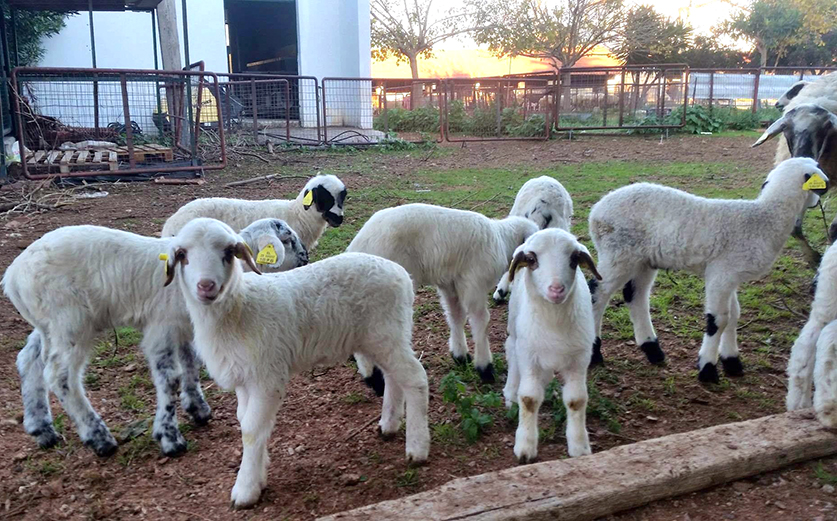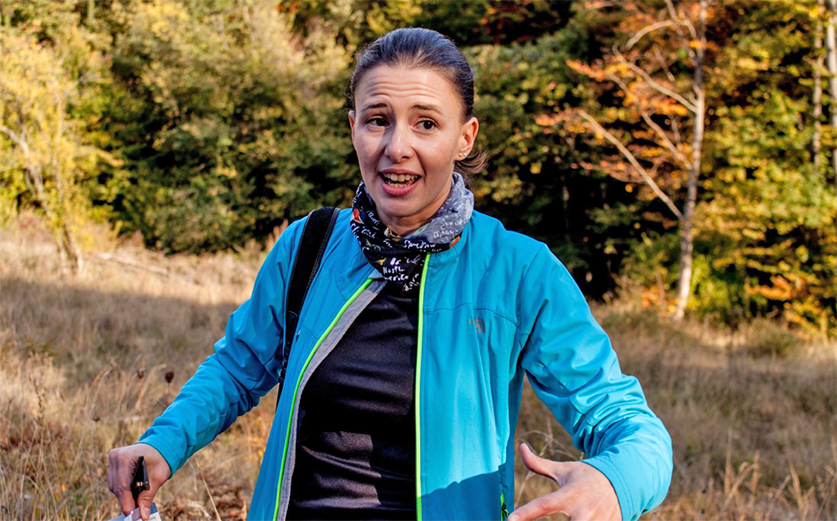Greek mythology says that at Mount Othrys, the Titans had been fortified during the great battle with the gods of Olympus and from there, they launched huge rocks towards Mount Olympus. But apart from the myths and stories, Mount Othrys has been and continues to be a source of natural wealth, as its peak is full with high quality herbal tea.
I met Constantinos Damianos and Christos Mylonas, members of the Othrys Herbs team, and they talked to me about their love of herbs and more specifically herbal tea, while explaining how they ended up creating tea in Nespresso-like capsules.
Constantinos and Christos originate from the same place, the Almyros area in Magnesia, under the shadow of Mount Othrys, which lies between the counties of Magnesia and Fthiotida and borders Thessaly and northern Central Greece. So, as soon as the “New Agriculture for a New Generation” program announced that it would conduct training seminars on aromatic and medicinal plants in the Almyros area, they both decided to participate without a second thought.
Constantinos is both a farmer and a mechanical engineer and has always been involved in aromatic plants, but nevertheless he felt he lacked the theoretical background and wanted to gain more knowledge, so he decided to participate in the aromatic plant training program. “I remember my childhood years, in the summers, I was collecting wild native aromatic plants. I knew that I wanted to work with aromatic plants. But because of my lack of expertise, I didn’t know how to do it right. That’s where the program came and now, I can say that I feel like I’ve finally got the knowledge I want! ”
Christos, on the other hand, has studied agronomy and has been professionally involved in aromatic plants before which seems only natural, since Christos family has a tradition of dealing with these sorts of plants. Both his parents and grandparents were working with aromatic plants and herbal tea. But he, too, felt that he wanted to concentrate and develop his knowledge in the field, as he says there was no university specialization in the specific area.
But one might ask, what is the capsule tea inspired by the Almyros Group as part of the training seminars of the “New Agriculture for a New Generation” program? The answer is that it is an innovative product that uses capsules compatible with Nespresso machines containing mixtures of aromatic plants. The main variety they use is called “raiser” in Greek, or simply herbal tea, and they also use varieties like chamomile, sage and mint, all harvested from the mythical Titans mountain.
“One afternoon, after we finished training, we sat down as a team and said we wanted to do something innovative, something different. So, after brainstorming and discussion, the idea came up and we decided to create herbal tea in Nespresso-like capsules so that it can be compatible with capsule coffee machines” says Christos. “At the end of the seminar, we had to implement a project in which everyone had to present a business idea. We came up with the idea of capsule tea as a group and started working on it gradually, “adds Constantinos. The idea follows the general philosophy of coffee capsules, as the team wanted to create a user-friendly product which is easier and faster to make. In the case of Othrys Herbs, I might say that tea capsules are not only easy and fun to make but they are also extremely beneficial for our health.
The Almyros team, however, is also interested in leaving the smallest possible carbon footprint through the production of its tea capsules. So, although they are now using standard capsules as their product is still in a pilot phase, they have designed a biodegradable paper capsule. “Unlike coffee, which has to be put in a protected environment so that it does not lose its aromas after milling, we do not have such a problem as our product is already dried. Therefore, we do not need sealing on the packaging. This allows us to use paper, which on the one hand costs less but it also has a lower carbon footprint, thus helping to protect the environment” says Constantinos. The packaging and the design they have created for their product reflects its character, as the colors are are the ones found in nature and the lines are simple. In fact, Christos has also created the logo that they will use, which depicts Mount Othrys, the trademark of their group.
Their goal is to make steady steps as a company. After they come up with the choice of the best mixes of aromatic plants and then place them in biodegradable paper capsules, their aim is to expand to markets other than Greek. “We would like to target, for example, the Russian market, because hot drinks like tea, and not so much coffee, are part of the country’s culture but they do not have products to cover their needs” says Constantinos.
And he continues by saying that “The response from the people so far is impressive. It certainly goes far beyond my expectations! ” Christos added that “I was hesitant at first, I can admit. But along the way, I tried it and I really liked it. Both as an idea and as a result”.
They both stressed the importance of their participation in the training program on aromatic plants as well as the fact that it took place in Almyros area. As Constantinos says, “It was really a big deal that the seminars took place in our area. We had the opportunity to participate without leaving anything behind! ” And he added that “The knowledge I gained through the program was very important. The courses had a great flow and the level of our trainers was really high. For me, the knowledge I received was fundamental, I see it every day in my work and I am improving. ”
Christos laughed and added that “First of all without the program we wouldn’t be talking about our product now! But beyond that, we got to know new people, we came up with new ideas, we were able to participate in exhibitions and get in touch with potential clients and professionals in the field. And though an agronomist, I was able to specialize in what interested me, aromatic plants.”
I can admit that after all this talk, I was curious to try the tea in capsules and had the opportunity to do so, at the “New Agriculture for a New Generation”’s Booth at the 28th Agrotica, where the beneficiaries of the program presented the products and their services to the people that visited the expo. So, I was able to see closely how the tea capsules were made, and then I tried different varieties of beverages made by Othrys Herbs. I must say that reading about it is one thing but trying it, well, that’s far better!


